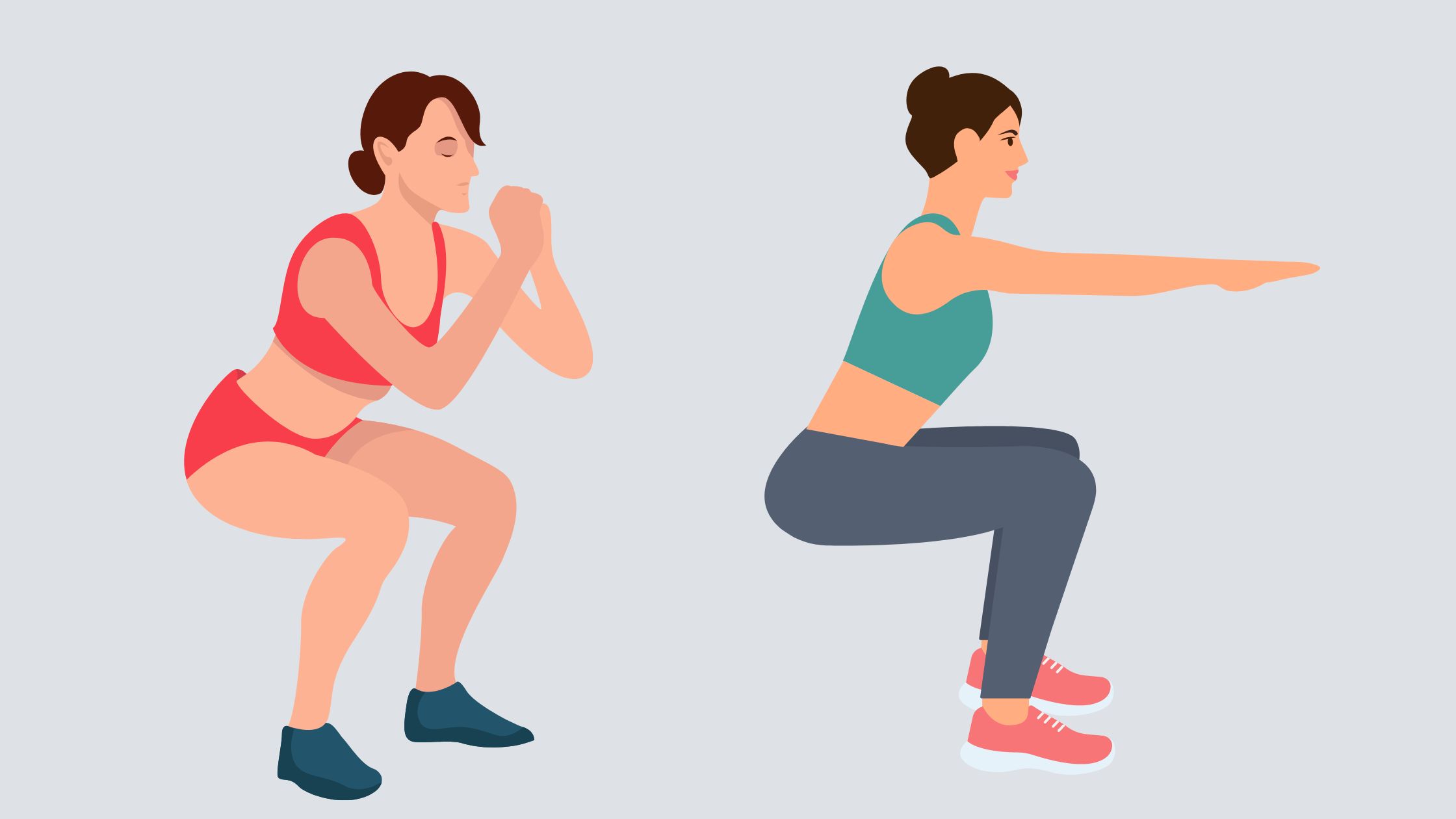50 Ways to Lose Excess Weight
In your pursuit to lose excess weight, you may find a plethora of advice online. Some people claim drastic diets to be the fastest way to lose weight, while others promote rigorous exercise regimes.
In this article, I discuss 50 effective and sustainable ways to shed those extra pounds and, specifically, to lose weight from your stomach.
Let’s get started!
Start with a Plan
To put it simply, a clear and well-articulated plan is your key to success in losing weight.
This doesn’t just mean setting a goal to lose excess weight or deciding to burn belly fat.
It involves detailed strategies, such as a meal plan, a workout regimen, a sleeping schedule, and so on.
In fact, when you pen down your goals and strategies, you create a roadmap that guides your journey and helps you track your progress.
Move More, Sit Less
It’s obvious that prolonged sitting can lead to weight gain, mainly because it involves minimal energy expenditure.
To combat this, you should aim to move more throughout your day.
For instance, take short, frequent breaks during work to walk around, use a standing desk, or do light stretching exercises.
These simple steps can significantly contribute to your goal of losing excess weight.
Try High-Intensity Interval Training (HIIT)
HIIT means doing short, very hard exercises and then resting for a bit before going again.
It makes your heart beat faster and helps you burn more fat quickly.
Lots of people find that HIIT helps them lose weight really fast.
It’s good at helping reduce belly fat and strengthens your heart, decreasing blood pressure and blood sugar.
Focus on Nutrition
In basic terms, losing weight isn’t just about eating less; it’s about eating right.
A balanced diet includes the right amounts of proteins, fats, and carbohydrates.
You should also include plenty of fish, fruits, vegetables, nuts, chicken breast, and whole grains in your diet.
They are low in calories but high in fiber and protein, meaning they will keep you feeling full, preventing overeating.
Cut Down on Sugary Drinks
Many times, we forget that drinks can contain just as many calories as food.
Sugary drinks, such as sodas, energy drinks, and fruit juices, can contribute to a high-calorie intake leading to weight gain.
By cutting down on these drinks or replacing them with water or unsweetened beverages, you can significantly reduce your calorie intake and aid your weight loss journey.
Keep a Regular Sleep Schedule
In some cases, the cause of weight gain can be as subtle as an irregular sleep schedule.
Lack of sleep or poor sleep quality can disrupt your body’s hunger hormones, leading to increased appetite and weight gain.
Thus, it’s important to maintain a regular sleep schedule and ensure you get adequate quality sleep every night.
Drink Plenty of Water
Hydration plays a crucial role in overall health, including weight loss.
Water helps maintain your body’s fluid balance, aids in digestion, and can help control hunger.
Often, the feeling of thirst can be confused with hunger, leading to overeating.
By staying hydrated, you can better control your appetite and calorie intake, aiding in weight loss.
Limit Alcohol Consumption
Alcohol, in general, is high in calories and devoid of nutrients.
Additionally, it can trigger hunger and lower your inhibitions, making you more likely to indulge in unhealthy eating.
Cutting down on your alcohol consumption can greatly contribute to your weight loss efforts.
Consume More Protein
Protein is the key macronutrient for weight loss.
It keeps you feeling full, increases metabolism and reduces your appetite.
Including a good source of protein in every meal can significantly aid in your journey to lose excess weight.
Add Fiber to Your Diet
Foods with a lot of fiber make you feel full because they take a long time to digest.
This helps you control your weight.
Foods like whole grains, fruits, Lentils, vegetables, and beans have a lot of fiber.
If you eat them, you may eat fewer calories overall, which can particularly help you lose weight.
Choose Whole Foods Over Processed Foods
Whole foods are packed with nutrients and fiber, which can help you feel full and satisfied.
On the other hand, processed foods often contain added sugars and unhealthy fats that can lead to weight gain.
Therefore, focusing on whole foods can aid in your weight loss journey.
Practice Portion Control
Controlling portion sizes is an effective yet often overlooked way to lose weight.
It’s easy to overeat when you’re served large portions.
Using smaller plates, bowls, and cups can help you consume less food and fewer calories.
Learn to Read Food Labels
Understanding food labels is essential for making healthier food choices.
It can help you identify high-calorie foods, hidden sugars, and unhealthy fats.
This will, of course, assist you in choosing foods that support your weight loss goals.
Try Intermittent Fasting
Intermittent fasting is when you switch between times when you eat and times when you don’t eat.
It can reduce your calorie intake and also enhance your body’s ability to burn fat, making it an effective strategy to lose weight.
Add More Fruits and Vegetables to Your Diet
Fruits and vegetables are good for losing weight because they have fewer calories but lots of vitamins and minerals your body needs.
They also contain fiber.
Consuming them can increase your satiety and keep your calorie intake in check.
Include Healthy Fats in Your Diet
Healthy fats, found in foods like avocados, nuts, and fish, can keep you feeling satisfied and prevent overeating.
Contrary to popular belief, not all fats lead to weight gain.
Including healthy fats in your diet can help you lose excess weight.
Consider a Low-Carb Diet
A low-carb diet involves reducing your intake of carbohydrates and increasing your intake of proteins and healthy fats.
Studies have indicated that low-carb diets can help you lose weight by making you feel full and decreasing your appetite.
Eat More Slowly
Eating quickly can lead to overeating while eating slowly can promote fullness and reduce hunger.
Taking the time to chew your food and enjoy your meals can aid in your weight loss efforts.
Avoid Late Night Snacks
Late-night snacking can lead to weight gain, as people often reach for unhealthy, high-calorie foods.
Try to eat your meals at regular times and avoid eating close to bedtime.
Chew Your Food Thoroughly
Chewing your food thoroughly helps to slow down your eating and can make you feel fuller.
It’s a simple but effective way to help control your portion sizes.
Opt for Natural Sweeteners
Cut down on refined sugar and use natural sweeteners like honey or maple syrup instead.
But remember, even natural sweeteners should be used in moderation.
Get Plenty of Vitamin D
Some research has shown that getting enough vitamin D can aid in weight loss and even reduce belly fat.
So make sure to get your daily dose of sunshine or consider taking a supplement if needed.
Keep Healthy Snacks Handy
Having healthy snacks at hand can keep hunger at bay and prevent you from reaching for unhealthy snacks when you’re feeling peckish.
Always Eat a Balanced Breakfast
A healthy, balanced breakfast can give you the energy you need for the day and help you avoid snacking on high-calorie foods.
Try Green Tea
Green tea is known for its health benefits, including weight loss.
It contains a compound called EGCG, which can help you burn more calories.
Don’t Skip Breakfast
Skipping breakfast can leave you feeling hungry later in the day, leading to overeating.
Including a balanced breakfast in your diet can help you control your appetite and lose weight.
Keep a Food Journal
A food journal can help you monitor your dietary intake and identify any unhealthy eating patterns.
By being aware of what and when you eat, you can make more mindful food choices and better manage your weight.
Prepare Meals at Home
Home-cooked meals are typically healthier and lower in calories than restaurant meals.
Making your own meals at home lets you manage the ingredients in your food and can help you lose weight.
Try Strength Training
Strength training develops lean muscle, which boosts your metabolism and burns more calories.
Including strength training in your workout schedule can aid in weight loss and prevent gaining it back.
Get a Workout Buddy
Having a workout buddy can increase your motivation and make your workouts more enjoyable.
This can lead to more effective workouts and contribute to weight loss.
Take the Stairs
Choosing stairs over elevators or escalators is an easy way to fit physical activity into your daily routine.
It can increase your calorie burn and help you lose weight.
Walk or Bike to Work
If possible, consider walking or biking to work instead of driving. This can be an easy way to increase your physical activity and help you lose weight.
Try Yoga or Pilates
Yoga and Pilates are beneficial for both your mind and your body.
These exercises strengthen your core, improve your flexibility and balance, and can also contribute to weight loss by burning calories.
Additionally, they can help reduce stress, which is often linked to weight gain.
Eliminate Distractions While Eating
Eating while watching TV or using your phone can cause you to eat too much.
Try to focus solely on your meal. You’ll likely enjoy it more and feel fuller, quicker.
Set Realistic Goals
Setting unachievable weight loss goals can demotivate you.
Be realistic. Healthy weight loss is usually 1-2 pounds per week.
Celebrate small wins, and remember, consistency is key.
Managing Your Stress Levels
Stress can make you eat more than needed. Use healthy methods to deal with stress, like working out, meditating, or doing things you enjoy.
This can help keep your weight healthy over time.
Try Different Types of Exercise
Switching up your exercise routine can keep you engaged and prevent boredom.
You could try different fitness classes, outdoor activities, or sports.
This can help you stay active and lose weight.
Incorporate Regular Detoxing
While detoxes aren’t necessary for everyone, they can be beneficial for some people.
A detox can help to cleanse your body, improve your energy levels, and support weight loss.
Always choose a safe and healthy detox plan.
Listen to Your Body
Paying attention to when your body feels hungry or full is important.
Eating when you’re hungry and stopping when you’re full can help prevent overeating and aid in weight loss.
Regularly Check Your Weight
Monitoring your weight can keep you aware of your progress and motivate you to continue your weight loss efforts.
However, remember that it’s normal for your weight to fluctuate daily.
Use Smaller Plates
Using smaller plates can make your brain think you’re eating more than you really are.
This can help you control portion sizes and consume fewer calories.
Take Regular Breaks When Sitting
Prolonged sitting can lead to weight gain.
Make sure to take regular breaks to walk around or stretch.
This can help you burn more calories and prevent weight gain.
Brush Your Teeth After Dinner
Brushing your teeth after dinner can deter you from late-night snacking. It’s a simple yet effective strategy to aid weight loss.
Include More Spices in Your Food
Spices like cayenne pepper and ginger can boost your metabolism and assist you to burn more calories.
Plus, they add flavor to your meals without adding calories.
Surround Yourself with Support
Having support from friends and family can motivate you to keep going.
They can encourage you, work out with you, and help you make healthy food choices.
Educate Yourself About Nutrition
Understanding nutrition can empower you to make healthy food choices. Learn about different nutrients, their benefits, and where you can get them from.
Be Consistent, Not Perfect
Consistency is key for weight loss.
Don’t worry if you slip up once in a while.
What matters is that you get back on track and keep trying.
Rethink Your Drink
Many drinks are high in sugar and calories.
Choose water, unsweetened tea, or other low-calorie beverages to help reduce your calorie intake.
Drink Black Coffee
Black coffee is high in caffeine and antioxidants, which can boost your metabolism and increase fat burning.
In fact, drinking black coffee before a workout can also enhance your performance and help you burn more calories.
Stay Motivated
Last but not least, staying motivated is key.
Keep reminding yourself of why you want to lose weight, celebrate your successes, and don’t get discouraged if progress seems slow.
Conclusion
Weight loss isn’t just about the number on the scale.
It’s also about becoming healthier and improving your quality of life.
Use these tips to help you lose excess weight, and remember, every little bit helps. You’ve got this!






